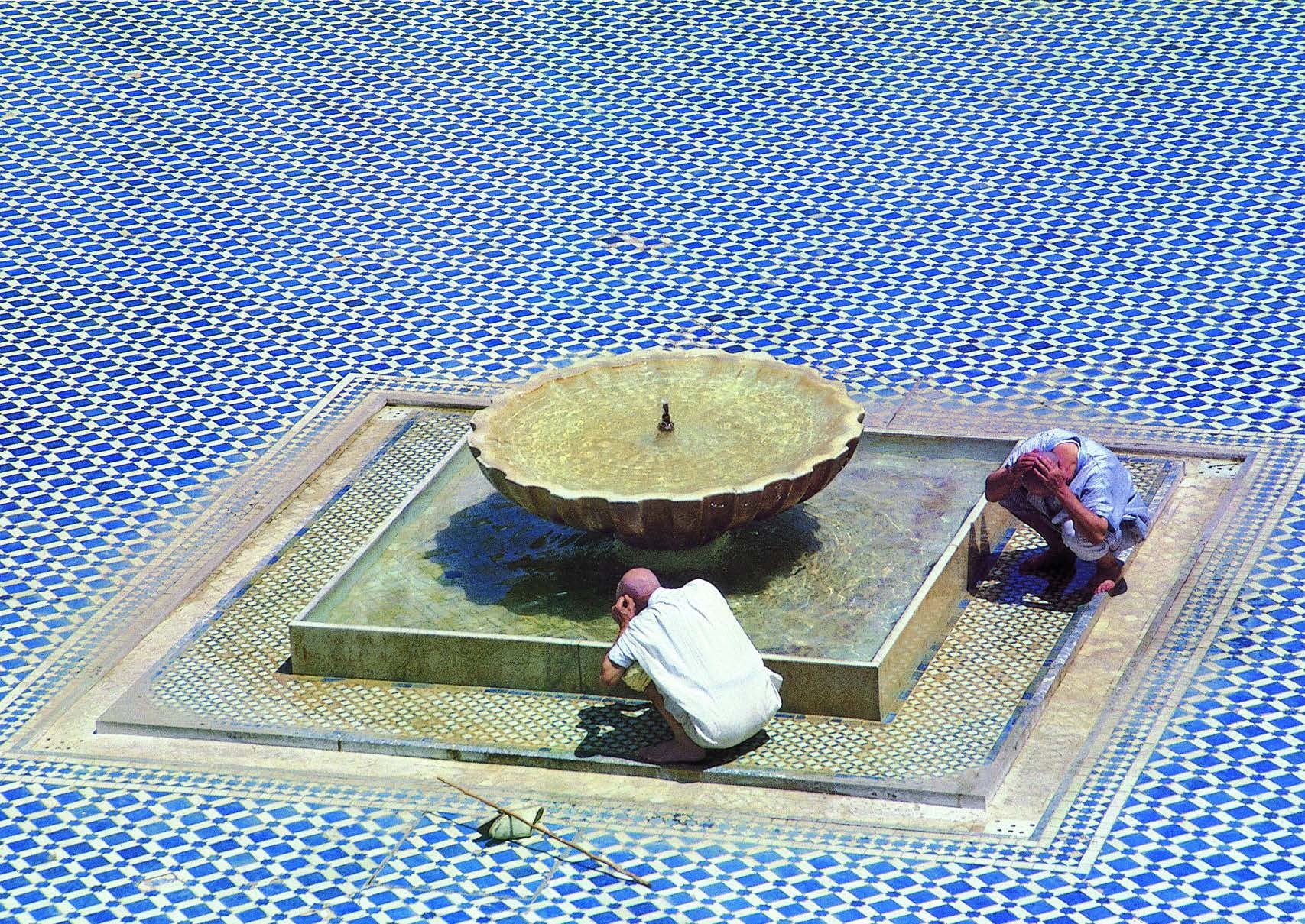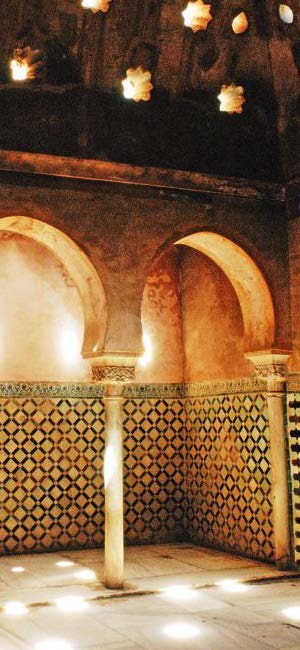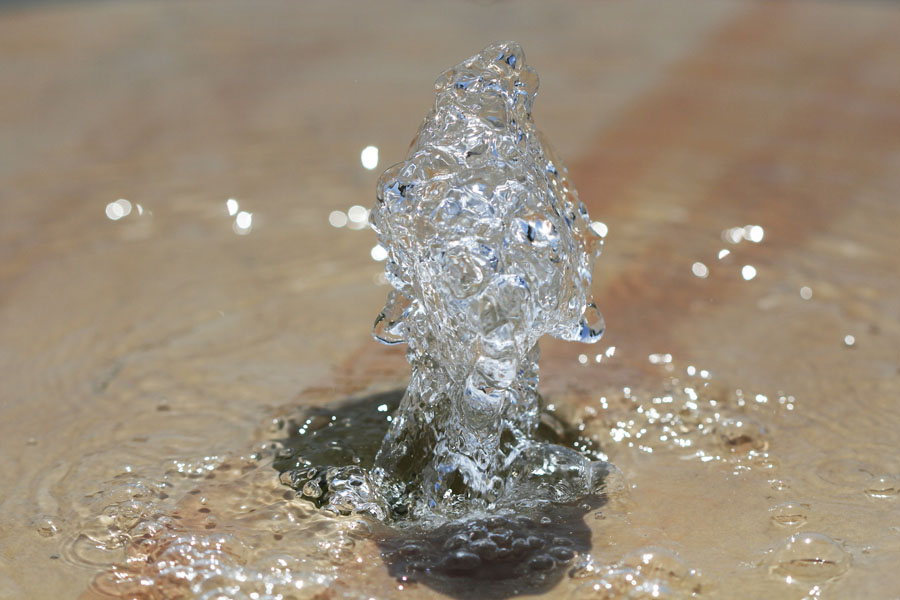According to the physician and vizier of Granada Ibn al-Khatib (14th century), in his ‘Book of Hygiene’, ‘water is one of the pillars of the body’. Two centuries earlier, another famous physician and philosopher, Ibn Rushd (Averroes) of Cordoba offered the best classification of drinking water:
As regards water, the best comes from sandy soil and springs and facing the east, fresh, pure water, tasteless and odourless, and also clear water with little weight. If none is available, fresh water from large rivers can be drunk along with water which has never mixed with meltwater or rain. In short, these are the kinds… of water which are considered of good quality with which to maintain one’s health [1].
The physicians of al-Andalus, veritable polymaths, essentially practiced preventive medicine, the best way to provide Man with a balanced life. In the Book of Hygiene, Ibn al-Khatib was critical of what he referred to as ‘the art of medicine’ which was practiced at the time:
… The treatments are numerous as are the treatises, with their multiple purposes and varieties. Nevertheless, the phrase ‘maintain good health and preserve it from the ways of neglect’ is mentioned in but a few of them and in small number. If judged with impartiality, the conservation of health would be the first of all things, the most authentic declaration and expression, because if its intention is pursued and its application realized, illness would rarely be feared [2].
Clear evidence of this preventive concern are the frequent recommendations concerning food and drink, which the Andalusian doctors prescribed their patients, according to their age and physical characteristics. Thus they began a dietary system for the preservation of health and mental faculties. In the majority of the medical treatises of al-Andalus we can find endless entreaties to eat particular foods and to drink the most purified water, although occasionally they make mention of wine.
A prime example is the work of Ibn al-Khatib, physician, poet, historian and vizier of Granada during the Nasrid dynasty. His “Book Of Hygiene” or “Book of Healthcare During the Seasons of the Year”, to give it its full title, is a comprehensive compendium of preventive medicine and dietetics, which can be understood as hygiene, or as a balanced way of living on the path to perfection to which every good Muslim should aspire. Ibn al-Khatib indicates which kinds of water are best for drinking, determining the best in terms of quality, together with the best for bathing, and how the latter should be conducted. In the chapter on drinking water he suggests:
The best sources are from warm earth with a continuous flow and, of these, those which originate from powdery clay are better than stony land. Rivers with a large, fast flow, facing east and far from their sources are also highly suitable. Equally good are those from uplands with a sweet taste, low weight, which are tasteless and odourless, easy to digest and quick to boil.

When assessing other types of water, first place goes to rainwater, especially that which falls in summer or after a storm, which can be improved by boiling (by which we learn that the Andalusians drank boiled water).

Al-Khatib considers well water to be of the worst quality, while that which flows through lead pipes, is muddy or rich in ammonia is said to be noxious. Meltwater can be drunk if it is clean. Hot springs are recommended for the elderly and those of a cold complexion.
In terms of bathing, al-Khatib states it is essential for the maintenance of health, but it should be carried out according to every individual and their complexion. Humidity is beneficial to those who are thin, dry or emaciated, but not exudation. The robust, obese, flabby and phlegmatic need dryness and should avoid submerging themselves in cold water. If one who bathes ‘exhibits sadness and loses weight’ (nowadays we would say ‘becomes depressed’), it is because they have taken too many baths, and ought to limit them. Al-Khatib adds that the main advantages of bathing are that it softens the skin, opens the pores and removes dirt. Interestingly he mentions certain ‘hygienic’ habits practised by the Andalusians:
Some argue that bathing provides the body with the same effects as wine, i.e., happiness and enjoyment, which explains why so many people sing when they bathe [3].
It is surprising how much we have inherited from our Andalusian heritage! Ibn al-Khatib outlines dietetic treatments, prescribing nutritional advice concerning food and drink according to one’s complexion and the season. He often prescribes ‘honey-water’ as a beverage (‘water to which honey is added’), since it contains calories. The custom of honey-water dates back to the early days of Islam, with the application of the medicine of the Prophet who, according to tradition, took honey mixed with cold water every morning and recommended its use:
“Honey is a remedy for every disease; the Qur’an is a spiritual remedy. I highly recommend the two remedies. Honey and the Qur’an”.
Cherif Abderrahman Jah
Notes
[1] Ibn Rušd, Comentarios a Galeno, trad. cast. M. C. Vázquez de Benito, Salamanca 1987, p. 266.
[2] Ibn al-Jatīb, Kitāb alWusūl… Libro de Higiene, trad. cast. M. C. Vázquez de Benito, p. 34.
[3] Ibn al-Jatīb, ibidem, p. 149.
This post is available in: English Español

